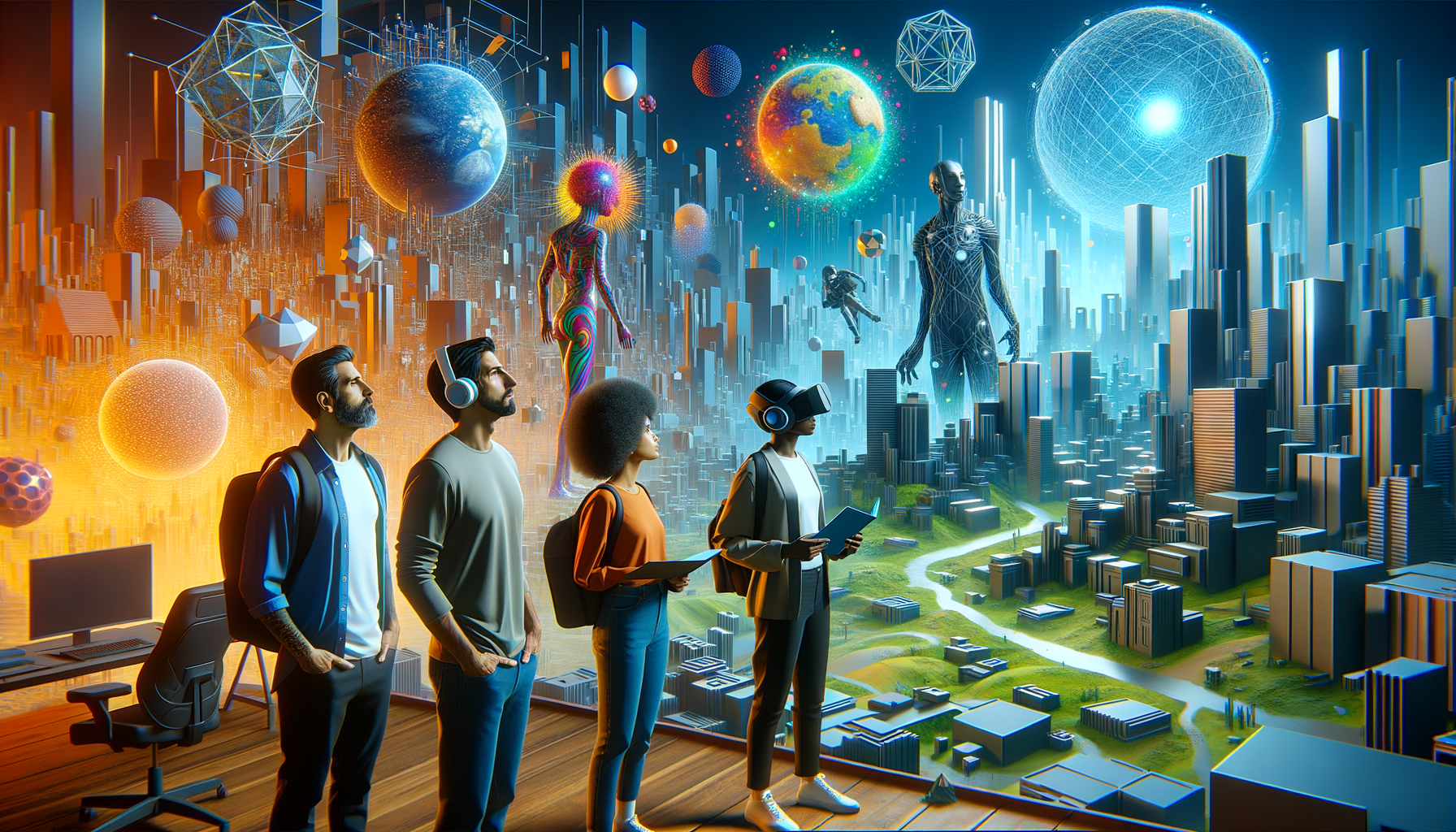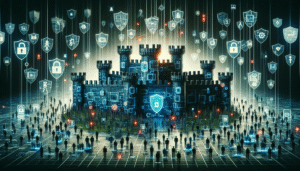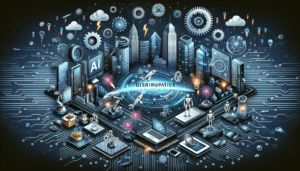
Exploring the Metaverse: A New Frontier in Digital Interaction
What is the Metaverse?
The metaverse is not a single, monolithic entity, but rather a converging network of 3D virtual worlds focused on social connection. Imagine a persistent, shared online space where users can interact with each other, experience digital environments, and engage in a wide range of activities, from attending virtual concerts and conferences to buying and selling virtual property and goods. While still in its nascent stages, the metaverse promises to revolutionize how we interact with the digital world, blurring the lines between the physical and virtual realms.
Key Components of the Metaverse Experience:
- Interoperability: A truly realized metaverse allows users to seamlessly transition between different virtual worlds and platforms, carrying their digital identities and assets with them. This interoperability is crucial for fostering a connected and unified metaverse experience.
- Immersive Experiences: Technologies like virtual reality (VR) and augmented reality (AR) are key enablers of immersive metaverse experiences. VR headsets transport users fully into virtual environments, while AR overlays digital information onto the real world, creating a blended reality.
- User-Generated Content: The metaverse thrives on user-generated content, empowering users to create, customize, and share their own virtual experiences, items, and even entire worlds. This creative freedom fosters a sense of ownership and community within the metaverse.
- Decentralization: Blockchain technology and decentralized autonomous organizations (DAOs) are increasingly being integrated into the metaverse, offering users greater control over their digital assets and participation in governance.
- Digital Economies: The metaverse is fostering the development of vibrant digital economies, powered by cryptocurrencies and NFTs. Users can buy, sell, and trade virtual land, items, and experiences, creating new opportunities for creators and entrepreneurs.
Current Metaverse Platforms and Applications:
Several platforms are paving the way for the metaverse, each offering unique features and experiences:
- Gaming Platforms: Games like Fortnite, Roblox, and Decentraland are already incorporating metaverse elements, hosting virtual concerts, events, and social gatherings within their virtual worlds.
- Social VR Platforms: Platforms like VRChat and AltspaceVR offer dedicated social VR experiences, allowing users to create avatars, interact with others, and explore diverse virtual environments.
- Virtual Worlds Platforms: Platforms like Second Life and Sansar provide users with tools to create and customize their own virtual worlds, offering a canvas for user-generated content and experiences.
- Enterprise Metaverse Solutions: Businesses are exploring the potential of the metaverse for training, collaboration, and customer engagement, creating virtual workspaces and interactive product demonstrations.
The Future of the Metaverse:
The metaverse is constantly evolving, with new technologies and applications emerging rapidly. Several key trends are shaping the future of the metaverse:
- Enhanced Realism: Advancements in graphics processing and rendering technologies are pushing the boundaries of realism in virtual environments, creating more immersive and lifelike experiences.
- Artificial Intelligence (AI): AI is playing an increasingly important role in the metaverse, powering realistic NPCs, personalized experiences, and intelligent virtual assistants.
- Haptic Feedback: Haptic technology is enhancing the tactile dimension of the metaverse, allowing users to feel virtual objects and environments, further blurring the lines between the physical and virtual.
- Brain-Computer Interfaces: While still in early stages, brain-computer interfaces hold the potential to revolutionize how we interact with the metaverse, allowing for direct neural control of avatars and virtual environments.
Challenges and Considerations:
The development of the metaverse also presents several challenges that need to be addressed:
- Privacy and Security: Protecting user data and ensuring the security of virtual environments is paramount in the metaverse. Robust security measures and ethical data practices are crucial.
- Accessibility and Inclusivity: The metaverse should be accessible to everyone, regardless of their physical abilities or socioeconomic status. Efforts are needed to ensure equitable access and inclusivity.
- Interoperability Standards: Establishing common standards and protocols for interoperability between different metaverse platforms is essential for creating a seamless and unified experience.
- Governance and Regulation: As the metaverse evolves, clear governance structures and regulations will be necessary to address issues such as intellectual property rights, virtual crime, and user safety.
- Ethical Implications: The metaverse raises complex ethical questions about identity, ownership, and the blurring of reality. Careful consideration of these ethical implications is crucial for responsible development.
Navigating the Metaverse Landscape:
The metaverse is a rapidly evolving landscape, offering immense potential for innovation and transformation. As technology continues to advance, the metaverse promises to reshape how we interact with the digital world, creating new opportunities for connection, creativity, and commerce. Staying informed about the latest developments and engaging in thoughtful discussions about the future of the metaverse will be crucial for navigating this exciting new frontier.
The Metaverse and its Impact on Various Industries:
The metaverse is poised to impact a wide range of industries, including:
- Education: Immersive learning experiences, virtual field trips, and collaborative virtual classrooms are transforming education.
- Healthcare: Virtual reality is being used for medical training, pain management, and therapeutic interventions.
- Real Estate: Virtual property tours and the buying and selling of virtual land are emerging trends in the real estate sector.
- Retail: Virtual stores and immersive shopping experiences are changing the retail landscape.
- Entertainment: Virtual concerts, festivals, and immersive gaming experiences are transforming the entertainment industry.
The Metaverse: A Collaborative Future:
The development of the metaverse is a collaborative effort, involving developers, creators, businesses, and users. Open dialogue, collaboration, and a commitment to ethical development are essential for realizing the full potential of the metaverse and creating a positive and inclusive virtual future.















